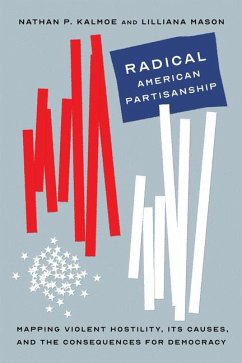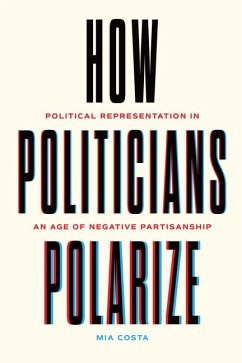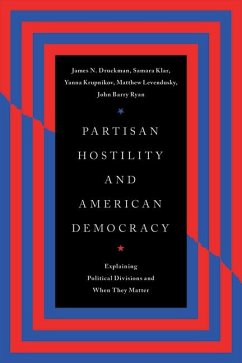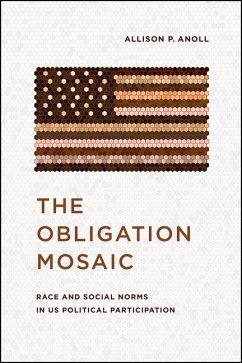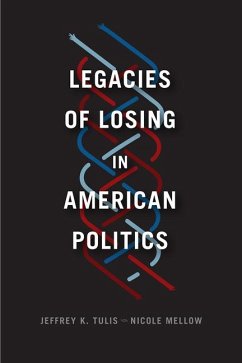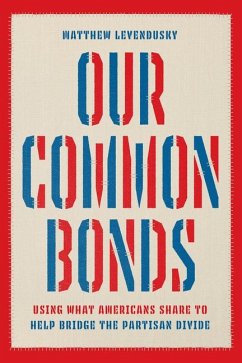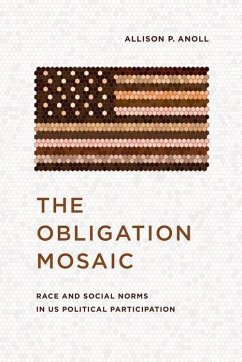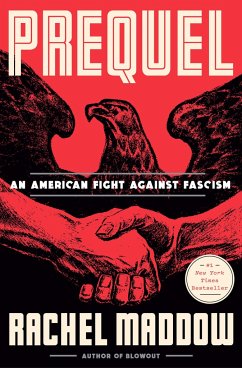Nicht lieferbar
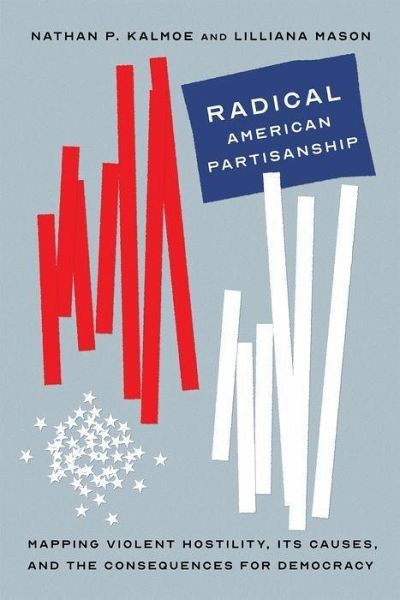
Radical American Partisanship
Mapping Violent Hostility, Its Causes, and the Consequences for Democracy
"On January 6 we witnessed what many of us consider a failed insurrection at the US Capitol. But others think this was political violence in service of the preservation of our democracy. When did our political views become extreme? When did guns and violence become a feature of American politics? Nathan Kalmoe and Lily Mason have been researching the increase in radical partisanship in American politics and the associated increasing propensity to support or engage in violence through a series of surveys and survey experiments for several years. Kalmoe and Mason argue that many Americans have b...
"On January 6 we witnessed what many of us consider a failed insurrection at the US Capitol. But others think this was political violence in service of the preservation of our democracy. When did our political views become extreme? When did guns and violence become a feature of American politics? Nathan Kalmoe and Lily Mason have been researching the increase in radical partisanship in American politics and the associated increasing propensity to support or engage in violence through a series of surveys and survey experiments for several years. Kalmoe and Mason argue that many Americans have become increasingly radical in their identification with their political party and more inclined to view partisans of the other party negatively as people. Their reactions to opposing political views give little room for respect or compromise and make increasing numbers of Americans more likely to either participate in political violence or to view those who do so on behalf of their party favorably. They also find that radical partisans are more apt to be receptive to messages from radical political leaders and less receptive to conflicting information and views. Radical partisanship and political violence are not new to the United States. In most of the 20th century we experienced less radical partisanship, with measures of attitudes towards partisans of other parties that were not as extreme as we see now but this has not been the case throughout much of American history, as witness the fight over slavery that led to the Civil War as well as the violence associated with racism after the fall of reconstruction to the present day"--





